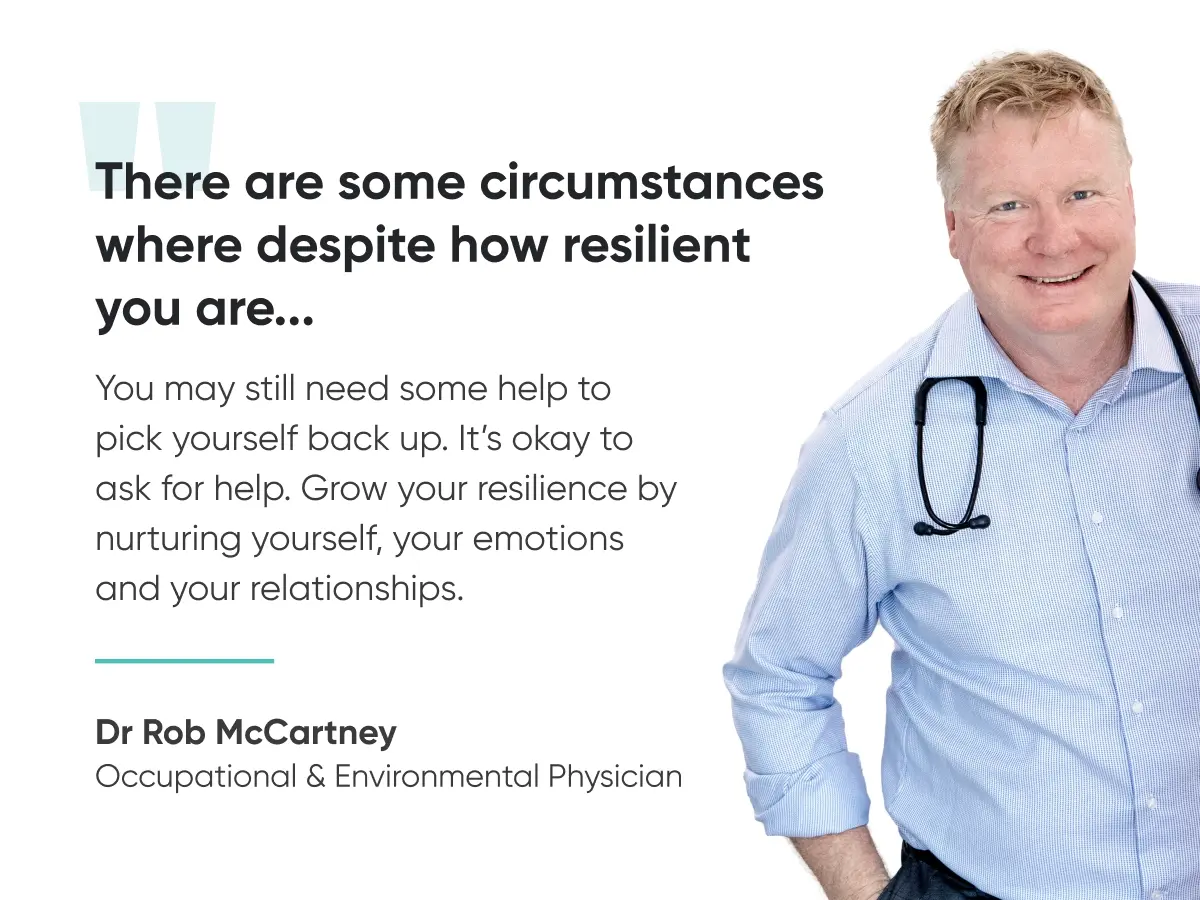Emotional resilience what it means and how to build it
resilience
Most of us have experienced times in our lives when everything just feels… difficult. We can’t always avoid challenging situations like these, but we can learn how to adapt. Get tips to build your resilience to better handle life’s twists and turns.

What does being resilient mean?
Resilience is simply the ability to adapt well in the face of adversity, trauma, tragedy, stress or threats.
Sometimes, the challenges we face involve cumulative stress – such as family and relationship problems, or serious health, workplace or financial stressors.
The more emotionally resilient someone is, the better they’ll be able to deal with these sorts of stresses. That’s because emotional resilience is a skill that helps you to accept, process and move forward through challenges.

resilience reads


How to recognise burnout
When it comes to burnout how do we recognise if we are on the path to developing it, or are already there?

Why is mental wellbeing important, and how can I help improve mine?
Sleep affects both our mental and physical wellbeing, but it’s often the first thing we sacrifice when we’re busy and stressed. Discover what else affects mental wellness, and how to help improve yours.


What is workplace burnout?
Did you know that not only is burnout a real experience that can devastate workers and cost workplaces, but the World Health Organisation has been telling us to sort it out since 1994?

How to deal with job loss and stay on top of your health
Losing your job is up there with some of life’s most stressful events… but your health doesn’t need to suffer.

How to say no without feeling bad
Saying no should be easy, but what if it isn’t? Here’s how to work out what to say to make life less overwhelming.

Understanding cortisol and stress levels
You may have heard that cortisol and stress levels are related, but there are so many misconceptions around how.

Why is self-care important?
Self-care isn’t self indulgent or selfish. But what is self-care and why is it so important?

Building resilience in children
Want to know how to build resilience in children? This article outlines four key activity areas that can help your kids become more resilient and provide them with important skills they can use throughout their lives.
download our free guide
Get expert insight and advice on upping your resilience, with content from Dr Nikki Stamp.

How to build resilience
Resilience isn’t a personality trait that only a lucky few possess. Anyone can build their resiliency.
The ability to learn resilience is like building muscle. Increasing your resilience takes time and intentionality, but it can be done with consistent practice.
Here are 4 helpful ways to build resilience
- Build your connections: Focus on connecting with empathetic, understanding people. The stronger your connections and relationships are, the better you’ll be able to deal with adversity.
- Foster emotional and mental wellness: Find some time in your week for mindfulness practices like journaling, yoga, prayer or meditation. But don’t forget that the effects of stress are just as physical as they are emotional. Proper nutrition, ample sleep, adequate hydration and regular exercise can go a long way in boosting resilience.
- Find a purpose: Being of service to others is a great way to build your confidence, self-worth and sense of purpose. Volunteer for a charity, try to eat more sustainably or simply by supporting a friend in a time of need.
- Seek help if you need it: Getting help when you need it is crucial in building your resilience.
shop self-care
This is for informational purposes only and does not provide medical advice, diagnosis, or treatment. Any information published on this website or by this brand is not intended as a substitute for medical advice. If you have any concerns or questions about your health you should consult with a health professional.

